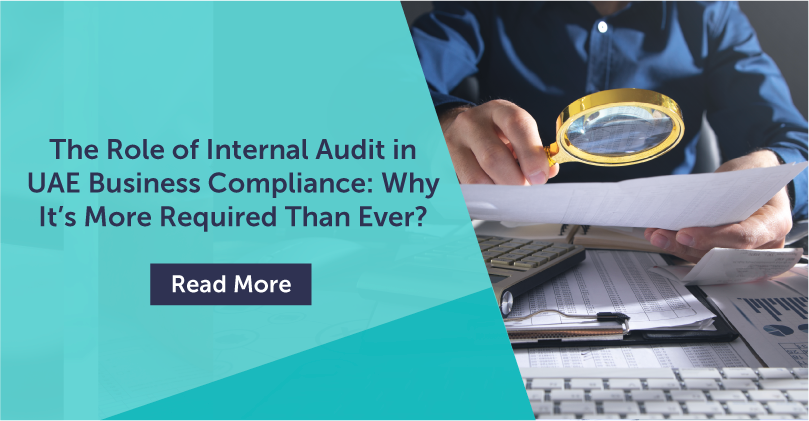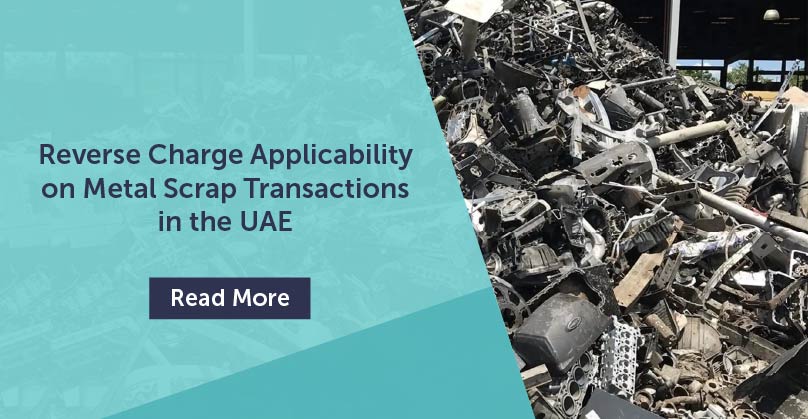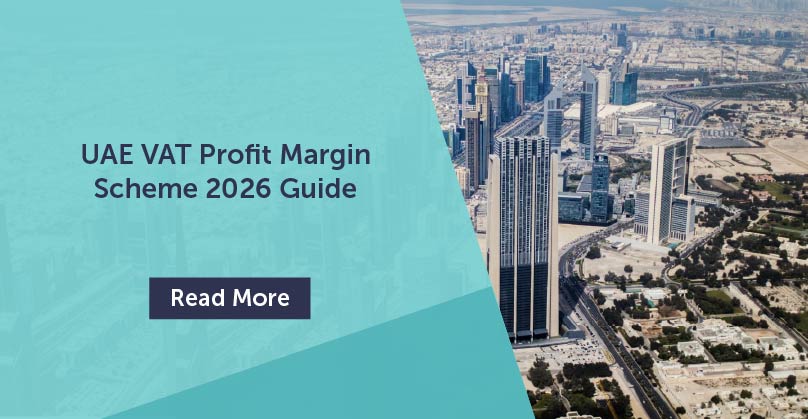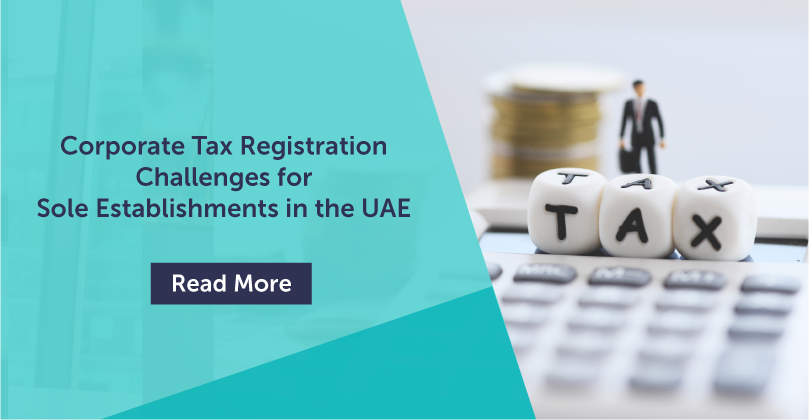
- Jun 18,2025
- Audit / IFRS
Internal Audit for UAE Businesses: Essential or Excess?
In today’s regulatory environment, compliance is not optional; it is a fundamental business requirement. The UAE has significantly advanced its legal and regulatory frameworks in recent years, aligning with international standards to enhance transparency, attract global investment, and combat financial crime. In this evolving landscape, internal audit plays a crucial role in helping organizations not only meet regulatory expectations but also enhance risk management and governance.
Why Compliance in the UAE is Evolving Rapidly?
UAE businesses today are exposed to a complex blend of local regulations and global compliance standards. Authorities such as the Ministry of Finance, the UAE Central Bank, the DFSA, the ADGM, the FTA, and the Dubai Land Department, among others, have issued various requirements across different sectors.
Key regulatory and compliance frameworks applicable in the UAE include:
- Anti-Money Laundering (AML) & Counter-Terrorism Financing (CTF)
- RERA (Real Estate Regulatory Authority) Compliance
- FATCA (Foreign Account Tax Compliance Act)
- CRS (Common Reporting Standard)
- Basel III Framework (for banks and financial institutions)
- SOX (Sarbanes-Oxley Act) & ICFR (Internal Controls over Financial Reporting)
- IFRS (International Financial Reporting Standards)
- ISAs (International Standards on Auditing)
- ISO 27001 (Information Security Management Systems)
- ISO 9001, ISO 31000, ISO 22301, ISO 14001 (Management Standards)
- PCI DSS (Payment Card Industry Data Security Standard)
- SOC 1 & SOC 2 Reporting (Service Organization Controls)
- GDPR (for entities processing EU resident data)
Each of these frameworks requires a different approach to governance, control environment, documentation, and monitoring.
How CLA Emirates Supports Compliance
1. Compliance Risk Mapping and Gap Identification
Our approach to internal audits begins with a thorough understanding of applicable compliance obligations. We perform:
- Risk assessments of business units including IT, finance, HR, procurement, and operations
- Mapping of current practices against applicable laws and standards
- Identification of gaps in policies, procedures, controls, and documentation
- Prioritized recommendations for closure and action plan
For example, for a financial institution, this may include Basel III capital adequacy checks, FATCA documentation, and suspicious transaction monitoring controls. For a real estate company, we evaluate RERA escrow rules, project registration compliance, and AML client onboarding procedures.
2. Review and Strengthening of Internal Controls
Internal controls are the backbone of any compliance environment. Our audits evaluate the design and operating effectiveness of controls, including:
- Entity-level controls (governance, code of conduct, tone at the top)
- Process-level controls (approval workflows, reconciliation, SoD)
- IT general controls (user access, backups, change management)
- Financial reporting controls (for SOX or ICFR compliance)
- Information security controls (aligned with ISO 27001 or PCI DSS)
We benchmark control maturity using frameworks like COSO and COBIT, and issue detailed heatmaps and control deficiency reports.
3. Policy and SOP Review and Development
Regulators increasingly demand well-documented, accessible, and enforceable procedures. We assess:
- Completeness and clarity of standard operating procedures (SOPs)
- Alignment with compliance standards (e.g., AML policy aligned with UAE Cabinet Decision No. 10 of 2019)
- Data privacy and cybersecurity policies (for GDPR, ISO 27001, or SOC 2)
- Emergency response, whistleblower, and business continuity plans
We also assist clients in drafting new policies that meet audit and certification requirements.
4. Continuous Monitoring and Reporting
An effective internal audit function ensures that compliance is not a once-a-year effort. We implement:
- Ongoing compliance testing programs
- Risk control matrices for continuous tracking
- Dashboard-based reporting for executive management and boards
- Regulatory compliance scorecards
- Control testing walkthroughs and evidence trails
5. Readiness for External Audits, Inspections, and Certifications
CLA Emirates prepares clients for:
- AML inspections by Central Bank or Ministry of Economy
- FTA VAT audits and tax return scrutiny
- ISO or SOC 1 & SOC 2 certification audits
- Internal and external statutory audits under ISAs
- Corporate Tax impact assessment and readiness with CT
- RERA escrow and project financial reviews
We simulate regulatory audits and close gaps before authorities raise red flags.
Industries We Support with Compliance Audits
Our firm has worked across a wide range of industries, customizing audits based on sector-specific compliance and operational risks:
- Real Estate and Construction: RERA, escrow management, contractor compliance, AML
- Retail, Trading, and E-commerce: VAT, PCI DSS, consumer protection, fraud controls
- Hospitality and Tourism: AML, payroll audit, licensing controls, data protection
- Healthcare: Patient data protection (ISO 27799), billing compliance, insurance fraud controls
- Logistics and Transportation: Import-export documentation, customs compliance, asset tracking
- Manufacturing and FMCG: Inventory controls, supplier due diligence, pricing documentation
- IT and Services: SOC 1/2 readiness, ISO 27001, business continuity, data privacy compliance
We also advise start-ups, family offices, and large groups on structuring internal controls and overall transaction advisory support.
Why Businesses Often Fail at Compliance?
Many companies either underestimate the complexity of compliance or misplace it within non-expert departments. Common issues include:
- Lack of formal policies or weak documentation
- Ineffective segregation of duties
- No central compliance ownership or reporting
- Failure to monitor third-party and vendor risks
- Inadequate IT security and user access reviews
- Delayed response to new laws (e.g., corporate tax, AML rules)
An internal audit function provides independent, structured, and expert scrutiny to eliminate these weaknesses.
CLA Emirates’ Approach to Compliance-Focused Internal Audit
Our internal audit methodology is built to help businesses:
- Establish strong internal governance and oversight
- Integrate risk-based planning with regulatory mapping
- Enhance control design and monitor control execution
- Prepare for third-party assurance, certification, or regulatory scrutiny
- Increase stakeholder confidence through transparent reporting
We utilize tools such as audit risk matrices, COSO-aligned templates, GRC platforms, and industry benchmarking.
Why Choose CLA Emirates?
- Decades of experience across local and international compliance landscapes
- A multi-disciplinary team with strong backgrounds in banking, IT, and regulatory affairs
- Customized internal audit plans for each client, aligned with real business risks
- Capacity to support both SMEs and large conglomerates
- No “checklist-style” audits—our goal is control enhancement and compliance assurance
Contact CLA Emirates for your Internal Audit Requirements
If your business is exposed to regulatory risks, preparing for inspection, or wants to strengthen internal controls and governance, CLA Emirates is here to support you.
Let’s ensure your organization is compliant, secure, and future-ready.
Call for Consultation
CA Dhara Yagnik I Associate Director
M: +971 56 5956836
E: Dhara.Yagnik@claemirates.com




